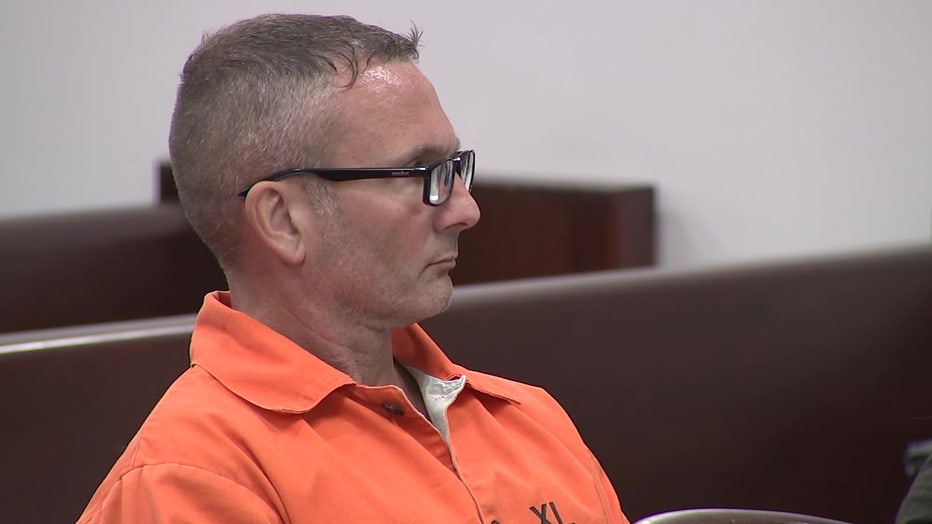Lithia man accused of stabbing girlfriend gets first look at potential juror pool
TAMPA, Fla. - A Hillsborough County man accused of stabbing his girlfriend to death got a look Monday at the pool of jurors who could decide his fate.
The death penalty is an option if Matthew Terry is found guilty of killing Kay Baker, who was his girlfriend before she was stabbed to death back in May 2022.
Terry was arrested after Baker's body was found at their Lithia home.

Matthew Terry || Kay Baker
The couple had reportedly been in a fight earlier that night. Prosecutors say Baker was running for her life when she was stabbed to death.
Tampa judge Christopher Sabella read the charges – including first-degree murder – to the group of potential jurors Monday.

Previous: Matthew Terry will face trial for girlfriend's murder
Deputies found Matthew Terry hiding in the bushes back in May. Investigators said Terry and his girlfriend, Kay Baker argued before she was found stabbed to death. His trial starts Monday, but a judge has to decide if the jury will also hear about Terry's past conviction for stabbing his ex-girlfriend.
Jury selection for the trial could last all week, but the final pool may have a lot of evidence and testimony to consider before deciding what, if any, punishment is deserved.
In a pre-trial hearing last week, Terry's ex-girlfriend, Michelle Rogers, testified that he beat and stabbed her after an argument several years ago. Terry served three years in jail for the attack.
PREVIOUS: Ex-girlfriend says man accused of stabbing woman to death was once jailed for stabbing her, too
Rogers survived. Kay Baker not.

Accused murderer Matthew Terry could be sentenced to death is he's found guilty of murdering his girlfriend following a fight.
But the judge is still deciding whether the jury will hear Rogers' testimony.
Terry and his legal team, meanwhile, thought the death penalty was off the table after then-state attorney Andrew Warren decided not to seek it, but that decision was reversed when the governor suspended Warren and installed a new state attorney, Suzy Lopez.
PREVIOUS: Pertinent punishment or political move? Suzy Lopez's motive in death penalty case questioned
Lopez made Terry's case part of her "tough on crime" agenda, putting the death penalty back on the table after just one day in her new office.
It's unclear whether the jury would be made aware in the change of sentencing options, or if it would have any impact on their decision of guilt or acquittal.


